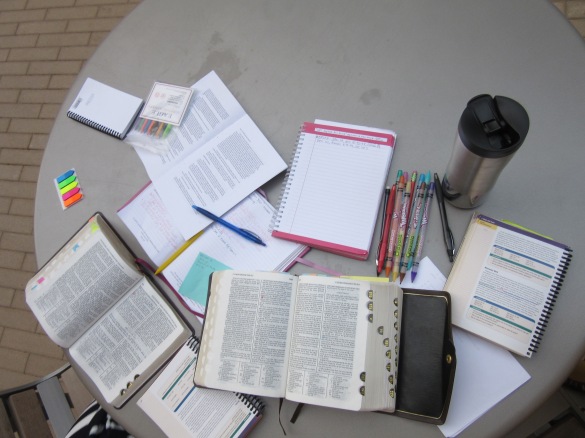In my first post about exact obedience, I cited a scripture in the Doctrine and Covenants, where God says that His gifts are “given for the benefit of those who love me and keep all my commandments, and him that seeketh so to do.” I focused on the first half of the verse, noting how God distinguishes between the commandment to love him and all other commandments. In this post, I hope to dive a little deeper.

Seeking to be obedient
So let’s talk about the phrase in Doctrine and Covenants 46:9, “him that seeketh so to do.” The same gifts are available to those who “keep all commandments” and those who “seek” to do so–in missionary lingo, God does not separate the exactly obedient from those who seek to be exactly obedient. He doesn’t “withhold blessings” (whatever that means–more on that later) when we fail.
Elder Jeffrey R. Holland’s thoughts on this verse are paramount:
Boy, aren’t we all thankful for that added provision “and … seeketh so to do”! That has been a lifesaver because sometimes that is all we can offer! We take some solace in the fact that if God were to reward only the perfectly faithful, He wouldn’t have much of a distribution list.
Please remember tomorrow, and all the days after that, that the Lord blesses those who want to improve, who accept the need for commandments and try to keep them, who cherish Christlike virtues and strive to the best of their ability to acquire them. If you stumble in that pursuit, so does everyone; the Savior is there to help you keep going. If you fall, summon His strength.¹
Making mistakes–and sinning–are simply part of our human experience. Sin brings us to Jesus. Without something to be redeemed from, we wouldn’t need a Redeemer. So we cannot overcome sin’s effects without Him (see Alma 42:17-23). In the same vein, we cannot overcome the effects of our mistakes, either. While sins and mistakes are different, both can cause suffering. And while sins and mistakes serve different purposes, both can be redeemed through Christ.
Difference between sins and mistakes
Pause for a moment and remember what sin is–as given in James 4:17, “Therefore to him that knoweth to do good, and doeth it not, to him it is sin.” Sin is willful disobedience against God. It is actively choosing to turn away from Him. We must be clean from sin to be comfortable in God’s presence.
Making a mistake is different. Missionaries have impossibly high expectations placed upon them. I think the brunt of it comes from themselves. They worry that they aren’t doing or being enough, that they aren’t “consecrated.” All this because he struggles with homesickness–but he’s trying. Or because she spent “too much time” at that family’s house–but she was loving and serving them just the same. Or maybe he has social anxiety, a major stumbling block in situations where he has to talk to strangers–oh, wait, that’s every single day. These missionaries are trying. They might “fail” day after day after day, but what’s our definition of failure? They are out there serving! They are consecrated. They are consecrated. They are “seeking” to obey, as the Lord says in Doctrine and Covenants 46:9.
A missionary will never be “exactly obedient” because he never can be. The only exactly obedient person is Jesus Christ (and He was much more than an ordinary person). So we need to quit condemning ourselves! We cannot raise God’s standards–we aren’t authorized to do that. What has God asked of His missionaries? To invite others to come unto Christ by helping them receive the restored Gospel. THAT’S IT. There are plenty of “good-better-bests” on that spectrum, but the difference between “good-better-best” is more in the weakness category than the sin category. Of this, Wendy Ulrich said:
We cannot simply repent of being weak—nor does weakness itself make us unclean. We cannot grow spiritually unless we reject sin, but we also do not grow spiritually unless we accept our state of human weakness, respond to it with humility and faith, and learn through our weakness to trust in God.²
We are weak
We must accept our state of weakness. Until we reach that degree of humility (humble enough to realize that we aren’t earning our way to a successful mission–or to heaven in general), we cannot grow spiritually. A mindset without human weakness is devoid of Christ. We “learn through our weakness to trust in God,” as Ether 12:27 suggests. Interesting, too, about that verse is the singular form of the word “weakness.”
“And if men come unto me I will show unto them their weakness. I give unto men weakness that they may be humble; and my grace is sufficient for all men who humble themselves before me; for if they humble themselves before me, and have faith in me, then will I make weak things become strong unto them.”
It doesn’t say “weaknesses.” It says “weakness.” I believe this can be applied to specific weaknesses, but I believe what Moroni was trying to tell us was that we are human. When we humble ourselves and accept our state of weakness, Christ can overcome it for us. He can strengthen us. Little by little, “grace to grace” (D&C 93:12-13, 19), He will help us. I tend to think of the phrase “grace to grace” the way we think “paycheck to paycheck.” We take our daily bread, our “daily grace,” from Jesus Christ. We don’t ask for more. We aren’t bionically made perfect. We “receive not the fulness at first” (D&C 93:12). The same goes for missionaries.
It needs to stop
Self-hatred. Discouragement. Doubt. All of this needs to stop. What would change if a missionary was kinder to him or herself? If he or she laughed at simple mistakes rather than inflicting punishment? How can a missionary teach and testify of Christ’s redeeming grace while denying it to himself? Missionaries need Jesus just as much as the people they teach.
This is not condoning willful rebellion against God. It’s not dismissing deliberate wrongdoing. It’s acknowledging the critical role that Jesus plays in our discipleship. Being patient with our mortal shortcomings helps us to become more like Him. We don’t serve missions to prove ourselves to Him. We serve because we love Him.
xo

1 Jeffrey R. Holland, April 2016 General Conference, “Tomorrow the Lord Will Do Wonders Among You.”
2 Wendy Ulrich, April 2016 Ensign, “It Isn’t a Sin to be Weak.”